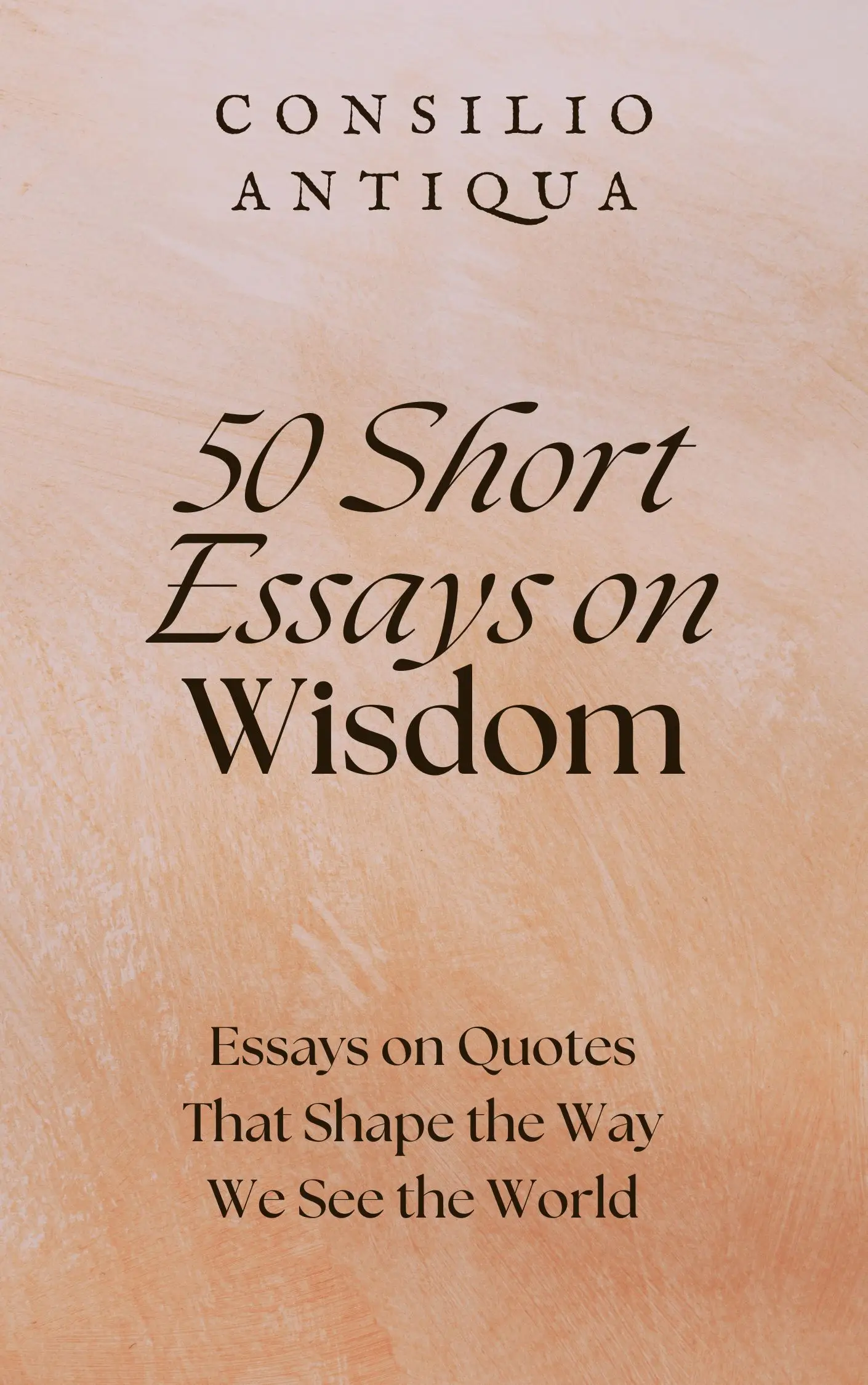
50 Short Essays on Wisdom | The Exquisite Ache of Ending
The Exquisite Ache of Ending
“All good things must come to an end.” — Geoffrey Chaucer
The old wooden carousel creaks to a halt, its painted horses frozen mid-gallop. A child's wail pierces the sudden silence, a tiny protest against the inevitable cessation of joy. Chaucer's simple observation, "All good things must come to an end," speaks to a fundamental truth woven into the fabric of existence – the bittersweet dance of beginnings and endings. This essay explores the profound wisdom embedded in accepting this impermanence, examining its historical roots and its relevance to navigating the complexities of modern life.
Chaucer, writing in the late 14th century, captured a sentiment echoed across cultures and millennia. Buddhist philosophy, for instance, centers on the concept of anicca, the impermanence of all things. The fleeting nature of life, joy, and even sorrow, is not seen as inherently negative but as a fundamental aspect of reality. From ancient Greek tragedies to the ephemeral beauty of cherry blossoms, the understanding of endings has shaped artistic expression and spiritual practice for centuries. The acceptance of impermanence, far from being pessimistic, becomes a catalyst for appreciating the present moment.
The wisdom of endings lies not in resisting their arrival, but in understanding their intrinsic value. Each ending, however painful, creates space for new beginnings. The death of a loved one, the conclusion of a relationship, the completion of a project – these are not simply losses, but transitions. They are opportunities for growth, for reflection, for a deeper understanding of ourselves and the world. To embrace endings is to embrace the cyclical nature of life, the ebb and flow of experience. It's to acknowledge that the intensity of a feeling, the beauty of a moment, is often amplified by its inherent temporality. The sunset's brilliance is enhanced by the knowledge that it will soon yield to night.
In our fast-paced, achievement-oriented society, the fear of endings can be paralyzing. We cling to jobs, relationships, and identities, even when they are no longer serving us. This fear often stems from a deep-seated insecurity, a belief that our worth is tied to external validation or material possessions. But the wisdom of endings teaches us that true fulfillment lies not in perpetual acquisition, but in the acceptance of change. Consider the entrepreneur who bravely shuts down a failing business to pursue a new venture; the individual who leaves a toxic relationship to prioritize their well-being; the artist who lets go of a project that no longer inspires them. These are acts of courage, fueled by the understanding that endings are not failures, but necessary pivots.
How do we cultivate this acceptance of endings in our own lives? Perhaps it begins with a conscious practice of mindfulness, of savoring the present moment without clinging to its permanence. It requires courage to let go, to acknowledge loss without succumbing to despair. It means recognizing that the ending of one chapter is simply the prelude to another. Ask yourself: What endings in your life are you resisting? What new beginnings might emerge if you embraced the inevitable? The path to peace often lies in surrendering to the exquisite ache of ending.
Chaucer's simple words resonate with a timeless truth. All good things, like all things, must end. But within this truth lies a profound wisdom: the acceptance of impermanence, the courage to let go, and the understanding that endings are not an end, but a beginning in disguise.
